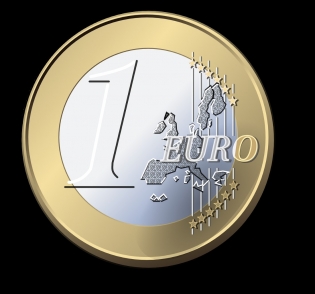WHAT IS A EURO?
The euro (symbol: €; code: EUR) is the national currency of 19 of the 27 European Union member states, you can see difference between pound to euro rate. It is the single European currency that replaced, in 2002, the national currencies of Austria, France, Germany, Spain, Greece, Italy, Portugal, Luxembourg, Finland, Ireland, Belgium, and the Netherlands. Nineteen European Union member nations now use the euro.
ADMINISTRATION OF A EURO:
The euro is regulated and controlled by the European Central Bank (ECB) headquartered in Frankfurt and the Eurosystem (composed of eurozone countries' central banks). The ECB has the exclusive power to determine monetary policy as a separate central bank. The Eurosystem is engaged in the printing, minting, and circulation of coins and notes in all Member States, as well as in the operation of the payment systems for the euro region. By satisfying such monetary and budgetary integration conditions, the Maastricht Treaty of 1992 obliges most EU Member States to accept the euro, although not all states have done so. The United Kingdom and Denmark established the privileges. At the same time, Sweden (who joined the EU in 1995, following the signing of the Maastricht Treaty) voted down the euro in a non-binding referendum in 2003 and circumvented the duty to accept the euro by failing to comply with monetary and financial conditions.
EURO AS A STRONG CURRENCY- YES OR NO?
A common currency makes the euro area an enticing market zone for third countries, thus facilitating commerce and development. Sensible economic management makes the euro an enticing third-country reserve currency and provides a greater role to the euro region a share of the global market. In the foreign exchange market, the euro, split into 100 cents, is the second biggest and second most exchanged currency behind the United States dollar.
EURO AS AN ADVANTAGE!
The euro was established because there are many benefits and advantages provided by a common currency over the previous situation in which each State Party has its own currency. In addition to reducing fluctuation risks and trade costs and improving the Currency Union and the single market, the euro also means stronger cooperation between the Member States for a stable currency, economy, and development for the good of each of us. Member States focused on developing a 'shared market' for trade when the EU was formed in 1957.
Over time, however, it became obvious that stronger economic and monetary cooperation was required for the continued growth and stability of the internal market and the improved success of the entire European economy, providing more employment and greater prosperity for Europeans. In 1991, the EU Treaty (Maastricht Treaty) was accepted by the Member States, which agreed that Europe must have a solid and stable currency for the 21st century.
THE REALIZATION OF THE BENEFITS OF EURO:
The benefits of the euro are versatile and are felt on different scales, from individuals and businesses to whole economies. They include:
- For customers and people, more options and predictable prices are being provided by Euro.
- It assures greater safety more enterprise and market opportunities and business.
- Gives the improved resilience of the economy and development.
- It is a source of more interconnected capital markets.
- A greater position in the world economy for the EU is provided.
It is a tangible symbol of the identity of Europe. Many of these advantages are intertwined. Economic stability is beneficial for the economy of a Member State, for instance, as it helps the government to prepare for the future. Yet firms also benefit from economic growth because it decreases volatility and allows corporations to invest. This, in fact, helps people who see more employment and better-quality work.
THE BENEFITS WORLDWIDE:
Fresh prospects in the world economy are often generated by the size of the common currency and the euro region. A common currency makes the euro area an enticing market zone for third countries, thus facilitating commerce and investment. Prudent economic management makes the euro an enticing third-country reserve currency and provides a greater voice to the euro region in the global economy. Economic stability is often introduced to the euro area through size and diligent management, making it more robust to so-called external economic shocks, i.e., abrupt economic shifts that could occur beyond the euro area and disrupt national economies, such as rising energy prices globally or volatility in global currency prices. Without employment cuts and lower inflation, the scale and resilience of the euro area make it more able to withstand those market volatilities. Hence, making the euro a great value for the market.








